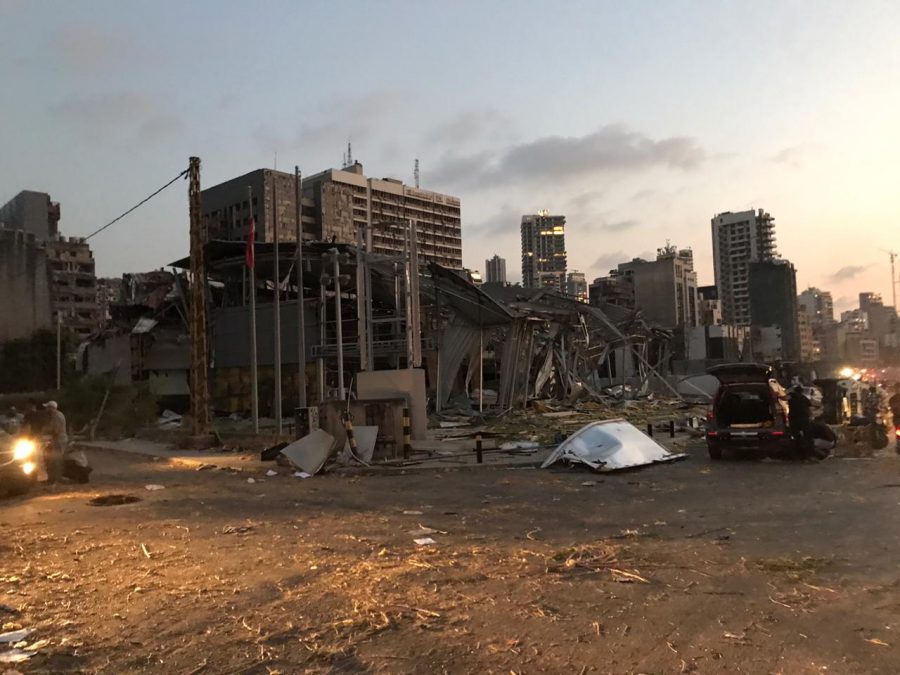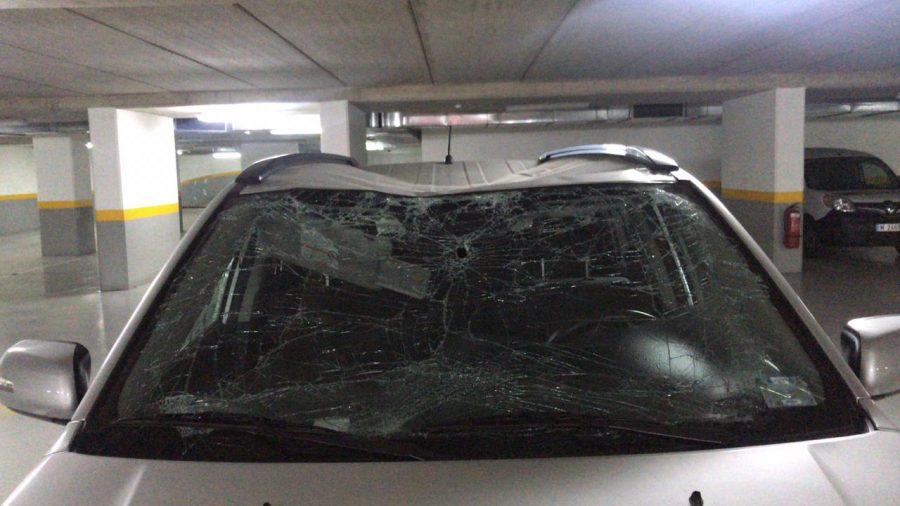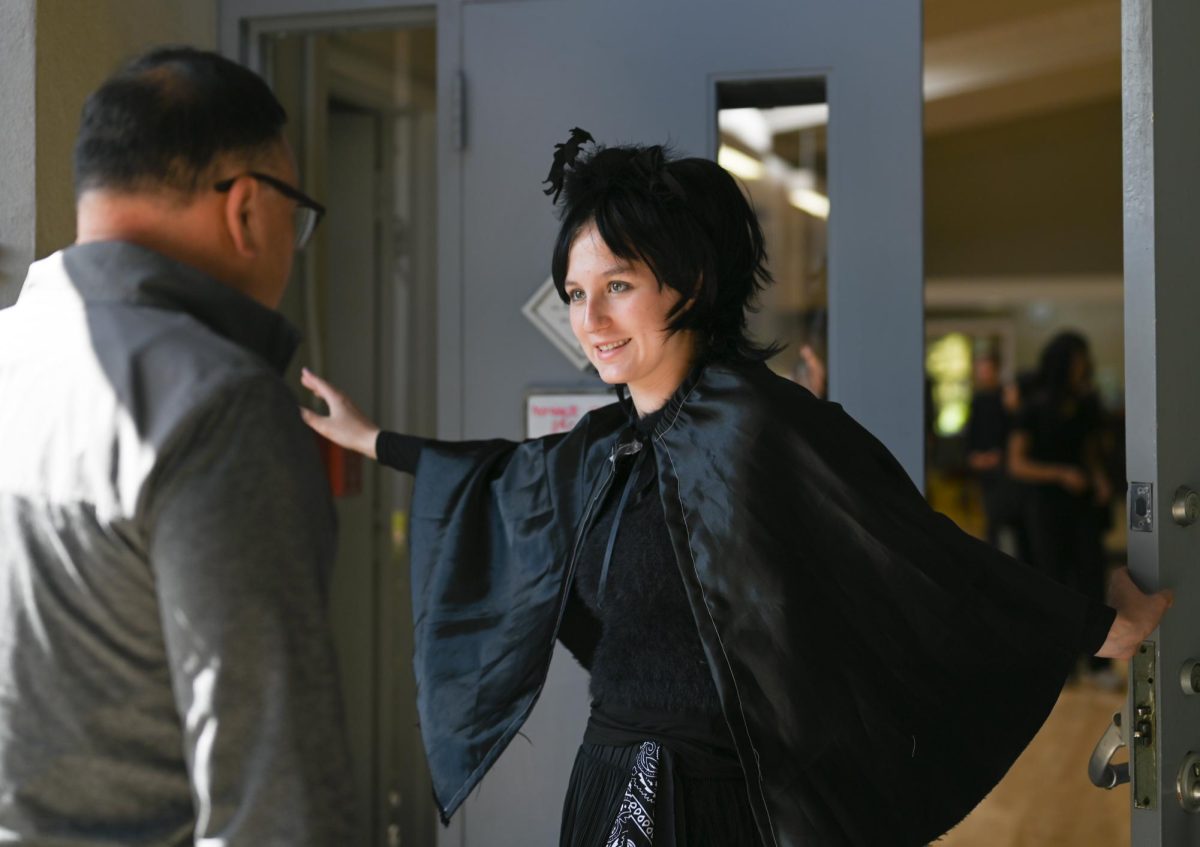Rescue efforts underway after deadly blast destroys Port of Beirut
Provided by Grace Hajjar (’20)
On Aug. 4, a deadly blast destroyed the port of the city of Beirut, killing over 170 people and wounding over 6,500 more. The explosion was prompted by a fire which ignited 2,750 pounds of incorrectly stored ammonium nitrate, a chemical compound used in fertilizer and the production of bombs.
September 6, 2020
On Aug. 4, a deadly blast destroyed the port of the city of Beirut, killing over 170 people and wounding over 6,500 more. The explosion was prompted by a fire which ignited 2,750 pounds of incorrectly stored ammonium nitrate, a chemical compound used in fertilizer and the production of bombs.
The ammonium nitrate was stored in a warehouse at the port for seven years after a Mozambique-bound Russian ship was stopped by Lebanese authorities after a dispute over port fees. While the explosion was not a deliberately-planned attack, possible negligence in storage of the compound led to the arrest of several port officials, according to a statement from the Lebanese Transparency Assocation, a non-profit organization working to root out corruption in the country.
Lebanese-American Grace Hajjar’s (‘20) cousin, Elsa Hajjar, was in Lebanon at the time of the blast, shopping for wedding dresses. Standing on the fifth floor of a glass building in the near vicinity of the warehouse, she saw the explosion take place, as well as the chaos in its aftermath.
“[Elsa] was in her flight or fight mode for hours afterward, and despite glass cuts all over her body, she helped other people for hours before she could get help,” Grace said. “After going to four different hospitals before being admitted, all the medical staff could do was dump water all over her wounds and plaster gauze on her face because there were so many people who were super hurt. She kept waiting for someone to come and stitch her up, but no one came.”
While medical help was initially limited, rescue teams from various countries began flying in just hours after the blast, with governments around the world pledging money and aid in rebuilding efforts. The United States pledged $17 million in initial disaster aid, while the Red Cross launched massive relief efforts on the ground in Lebanon.
Suman Mohanty (12), co-president of the Red Cross club, appreciates how quickly the Lebanese Red Cross responded. As soon as she found out about the explosion, she worked with the club’s leadership team to create a post on Instagram about the incident to raise money and awareness.
“There’s so many people suffering, and the Lebanese Red Cross was there immediately, showing that the Red Cross really follows their goal of helping people regardless of the situation,” Suman said. “My initial impression [to the explosion] was how we can help. Immediately, we created a post highlighting what had happened and linked the official page of the Lebanese Red Cross, doing our part to help with relief efforts. I’m really glad that we’re in a position to help out.”
Since the blast, search and rescue teams have continued searching the rubble for signs of life and to recover bodies. Several people remain missing, but hopes to recover people alive are faltering over a month after the event.
Six days after the blast, the Lebanese cabinet stepped down as fury in the capital spurred massive protests. On Aug. 31, the country’s president designated Mustafa Adib, Lebanon’s ambassador to Germany since 2013, to be the next prime minister. His responsibilities include not only addressing the rebuilding in the aftermath of the explosion, but also solving the country’s deep economic and financial crisis and halting rapidly rising Covid-19 cases.
Tariq Rami, a Lebanese-American administrative staffer at San Jose City Hall who also volunteers to help Middle Eastern immigrants with assimilation, worries that aid efforts will be halted by turmoil and a lack of resources in the country, but is hopeful that through unity, the country can work together and support each other in these trying times.
“Lebanon has been through so much these past few years. I understand the frustrations of my people back home, but at a time like this, I think we need to have faith in each other above all,” Rami said. “While I believe that the correct leaders can help restore mutual trust between the government and the people, I think that at the moment, we need to focus on rebuilding and making sure that we put sustained efforts behind bettering the lives of everyone there.”
As Beirut begins to rebuild, Grace is grateful for the efforts underway but hopes to see more people educate themselves about the event and contribute however they can.
“I really appreciate what’s going on right now, but we definitely need a lot more aid. Just because Lebanon is a Middle Eastern country, people normalize events like this,” Grace said. “Nobody should normalize innocent people losing their lives. More people need to educate themselves and learn about Lebanon and learn how rich and beautiful our country was and still is.”


















![“[Building nerf blasters] became this outlet of creativity for me that hasn't been matched by anything else. The process [of] making a build complete to your desire is such a painstakingly difficult process, but I've had to learn from [the skills needed from] soldering to proper painting. There's so many different options for everything, if you think about it, it exists. The best part is [that] if it doesn't exist, you can build it yourself," Ishaan Parate said.](https://harkeraquila.com/wp-content/uploads/2022/08/DSC_8149-900x604.jpg)




![“When I came into high school, I was ready to be a follower. But DECA was a game changer for me. It helped me overcome my fear of public speaking, and it's played such a major role in who I've become today. To be able to successfully lead a chapter of 150 students, an officer team and be one of the upperclassmen I once really admired is something I'm [really] proud of,” Anvitha Tummala ('21) said.](https://harkeraquila.com/wp-content/uploads/2021/07/Screen-Shot-2021-07-25-at-9.50.05-AM-900x594.png)







![“I think getting up in the morning and having a sense of purpose [is exciting]. I think without a certain amount of drive, life is kind of obsolete and mundane, and I think having that every single day is what makes each day unique and kind of makes life exciting,” Neymika Jain (12) said.](https://harkeraquila.com/wp-content/uploads/2017/06/Screen-Shot-2017-06-03-at-4.54.16-PM.png)








![“My slogan is ‘slow feet, don’t eat, and I’m hungry.’ You need to run fast to get where you are–you aren't going to get those championships if you aren't fast,” Angel Cervantes (12) said. “I want to do well in school on my tests and in track and win championships for my team. I live by that, [and] I can do that anywhere: in the classroom or on the field.”](https://harkeraquila.com/wp-content/uploads/2018/06/DSC5146-900x601.jpg)
![“[Volleyball has] taught me how to fall correctly, and another thing it taught is that you don’t have to be the best at something to be good at it. If you just hit the ball in a smart way, then it still scores points and you’re good at it. You could be a background player and still make a much bigger impact on the team than you would think,” Anya Gert (’20) said.](https://harkeraquila.com/wp-content/uploads/2020/06/AnnaGert_JinTuan_HoHPhotoEdited-600x900.jpeg)

![“I'm not nearly there yet, but [my confidence has] definitely been getting better since I was pretty shy and timid coming into Harker my freshman year. I know that there's a lot of people that are really confident in what they do, and I really admire them. Everyone's so driven and that has really pushed me to kind of try to find my own place in high school and be more confident,” Alyssa Huang (’20) said.](https://harkeraquila.com/wp-content/uploads/2020/06/AlyssaHuang_EmilyChen_HoHPhoto-900x749.jpeg)











